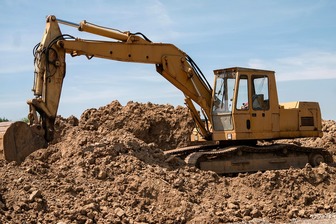 Building a new home? Here are a few things to help you understand the "guts" of your house. In this particular case, the foundation. In case you didn’t know yet, the house foundations are the system on where the home lies. Oftentimes, the foundation lies upon the footings and holds the floor system – as with traditional foundation piers and walls. With any good foundation, it starts with excavating. Excavating If your home will require a foundation (which it will), then it will need to be dug – or in other words, excavated. The potential issue of excess dirt should be addressed. You need to plan ahead so that you’re not stuck with costly hauling charges in order to get rid of it. Excavating your basement is performed by a man on a dozer. He will be the one who will ramp into and out of the holes. You will want to have somebody there who understands how to make use of a the equipment and plan ahead so the hole is dug to the right and appropriate depth. Kinds of Foundations Concrete Foundations – Concrete foundations walls are sought after in the different areas of the country, as well as here in Florida. At the same time it is mostly used if there is a basement or crawlspace. Metal or wood forms are set in the footings. This kind of foundations is utilized to safeguard the exterior walls. It can also be done with blocks (also very common). Wood Foundations – If you are one of those people who is planning to use Wood Panel Foundation system, consider this with caution. There are some reasons you don't see them very often. They have a short life span many times, can be weak, and rot easily. One of its advantages is that it offers is the ability to get your house foundation in throughout bad weather and it’s quick to install too. Pier Foundations – Houses with pier foundations are a typical class of foundations here in Florida. They are basically posts set in the ground. The majority of us are acquainted with this kind of foundation, which is mostly observed in beach houses.
0 Comments
 Have you built a new home? Congratulations! Before the 12-month builder warranty expires, you need to have your home checked and inspected for any construction flaws or items, which might not be working properly, or any other concerns, which might be protected by the builder’s warranty. We can help you at this stage with an 11th month warranty inspection (contact us). Your house is a new one and most things should be under warranty. This might be something you heard from a builder or some of the builder representatives. Your 12-month builder’s warranty covers a lot of systems and items within your home that may have been installed improperly, or with no proper preventive measures taken. Carelessness like this is the main cause for the majority of issues a home will develop within its life. Thus, if you have bought a new home in the last year, at the same time you are worried about the present issues or possible issues with your home, having a builder warranty is a good idea. However, you must not expect that a builder will rush out right away for an issue to your home, like a nail pop in the drywall. This kind of problem happens due to the natural settling of your home and it is best addressed in just one visit near the end of the first year. Normal problems seen in homes are exterior siding, pipes, which are not attached properly, cold and hot water taps reversed, improperly grounded electrical outlets, windows, plumbing leaks, improperly installed roof shingles, and a lot more. The majority of builders are very receptive when alerted to defects. So, it is suggested that you present your home inspection report to the builder along with a written copy of the agreement between you and him. |
AuthorMike McFadden, Company Owner & Certified Master Home Inspector Archives
July 2024
Categories |
Lets Talk! (407) 630-4973

 RSS Feed
RSS Feed
